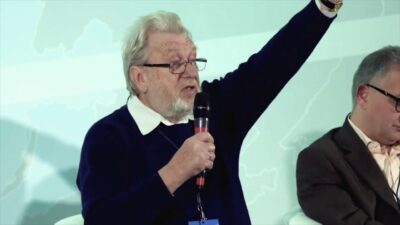Although the Ukrainian counteroffensive is still ongoing, Western military officials and politicians are already beginning to think about a spring offensive by the Ukrainian armed forces next year. According to The Wall Street Journal, Kyiv’s partners realize that Ukraine’s struggle to liberate the occupied territories will take a long time.
When Kyiv’s counteroffensive began in the spring, optimists hoped that Ukrainian forces would be able to repeat last year’s success and push back Russian forces. However, the first attempt to use Western tanks and armored vehicles to break through the fortified Russian lines stalled. Since then, progress has been slow and painful, with the AFU having to switch to small unit tactics. A new breakthrough is still possible, but military leaders and politicians are already wondering how to prepare for a protracted conflict.
At the NATO summit in Lithuania, U.S. President Joe Biden reaffirmed his intentions to continue supporting Ukraine. The US, NATO and Japan are developing long-term security plans for Ukraine and continue to supply advanced weapons, including ammunition and missiles. However, U.S. Chief of Staff Mark Milley and other military officials caution that Ukraine’s rapid gains last year will be harder to replicate. “I really think the administration realizes that Ukraine is not going to regain all of its territory anytime soon”, former U.S. representative to NATO Ivo Daalder said.
Western countries had hoped the AFU breakthrough could weaken Russian forces enough to bring President Vladimir Putin to the negotiating table as early as this winter. Diplomats say the chances of that now seem unlikely. Instead, Russia is bolstering defense lines in Ukraine, increasing troop numbers and ramping up production of ammunition and weapons. The West is also strengthening its military industry, and the prospect of a protracted war of attrition looms.
“This war could become similar to the Korean War, rapid maneuvering on the front in the first few months and then relative stability, but both sides will figure it out years from now”, believes Dmitri Gorenburg, a Russia expert at the Center for Naval Analyses, a Pentagon-affiliated think tank. The Korean War, which began in 1950, has never been concluded and is technically still ongoing.
Even if the Ukrainian armed forces don’t make a breakthrough by the end of the summer, Ukraine could continue fighting into winter. Rain and snow may slow down operations using heavy equipment, but Ukrainian forces have proven most effective when operating in mobile groups. “The Ukrainian army continues to adapt faster than the Russian army”, argues Gordon Davis, a former NATO deputy secretary general.





